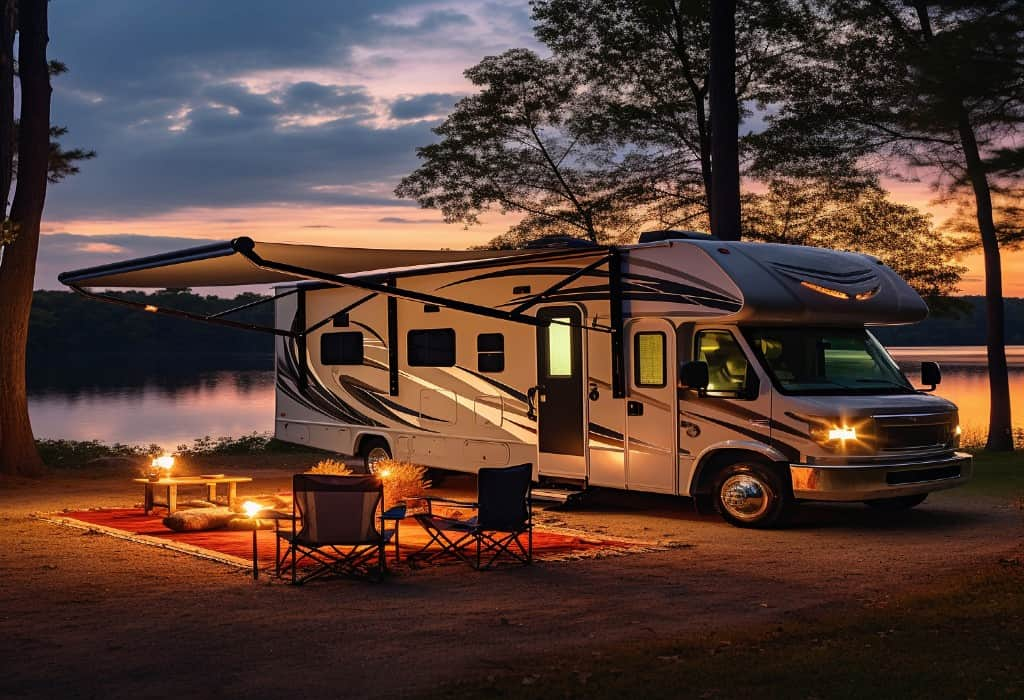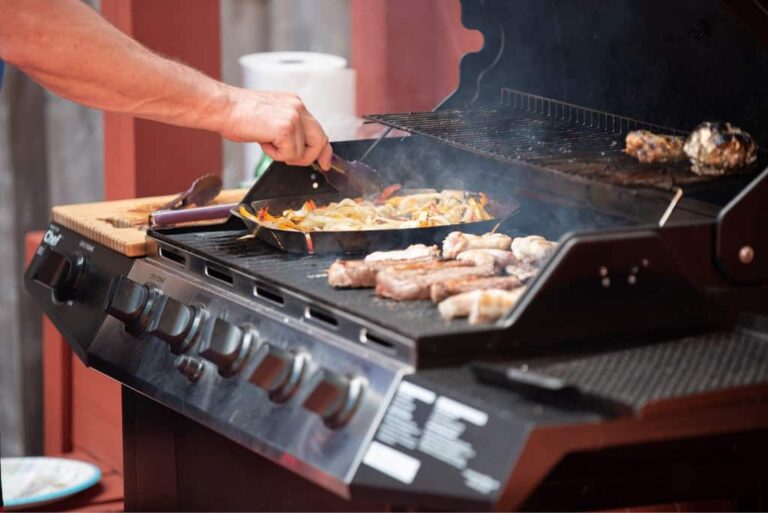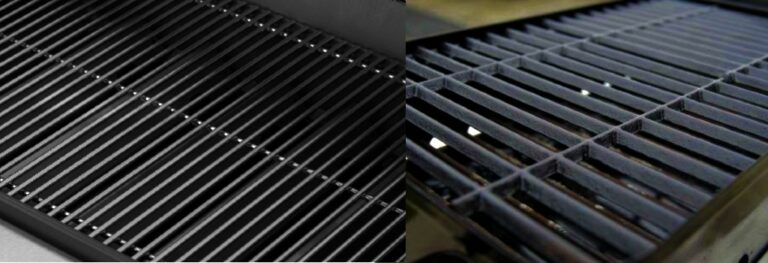Rv Generators: Powering Your Adventures On The Open Road

Hit the open road and bring your dreams to life with the power of RV generators. These incredible machines are the lifeblood of your recreational vehicle, providing the electricity you need to keep all your luxuries running perfectly. Whether wandering the wilds or launching a cross-country expedition, RV generators are your faithful companion, ensuring you never have to sacrifice the amenities of modern life.nnIn this complete guide, we’ll explore the inner workings of RV generators, aiding you in picking the ideal size and model for your individual needs.nnWe’ll also examine setup and upkeep secrets, as well as tactics for governing energy use and diminishing noise. Repairing regular difficulties, lengthening the lifespan of your generator, and even exploring alternate power sources are all on the menu. So, fasten your seatbelt and get ready to energize your adventures on the open road!
Understanding How RV Generators Work
Gaining insight on how RV generators function is indispensable for providing power to your ventures on the open road. These generators are usually driven by either gasoline, diesel, or propane, and they work by transforming the fuel into mechanical energy, which is then changed over into electrical power through an interaction called electromagnetic induction.
RV generators are composed of a few key components. The engine gives the mechanical energy expected to turn the alternator, which produces the electricity. The fuel system gives vital fuel to the engine, while the control board permits you to begin, stop, and screen the generator’s presentation.
When deciding the correct size and kind of generator for your RV, it’s basic to consider components such as the all-out electrical load you’ll be utilizing, the fuel accessibility, and the commotion level. A generator that is too small probably won’t have the option to control the entirety of your machines, while one that is too huge could be wasteful and squander fuel. By gaining insight into how RV generators work and thinking about your particular requirements, you can guarantee that you pick the ideal generator to give power to your ventures on the open road.
Choosing the Right Size and Type of Generator for Your RV
Picking the ideal size and type of generator for your motorhome is vitally essential to guarantee a tranquil and trouble-free journey. When it comes to opting for the best generator for your RV, there are several factors you need to bear in mind.
Initially, you need to identify the generator size you’ll need. This will depend on the power requirements of your RV appliances and electronics. It’s essential to select a generator that can handle the overall power load of your motorhome, so you can comfortably operate all your devices without any issues.
Following that, you need to contemplate the type of generator most suitable for your RV. There are two main types: portable generators and built-in generators. Portable generators are more versatile and can be taken out of the RV and used for other purposes. Conversely, built-in generators are permanently installed in the motorhome, so you don’t have to stress about carrying them around or storing them.
Choosing the right size and type of generator for your RV is pivotal for a successful road trip. Once you’ve decided, it’s time to proceed to the next step – installing and maintaining your RV generator. This will ensure that your generator remains in peak condition and continues to power your excursions on the open road.
Installing and Maintaining Your RV Generator
Having chosen the ideal generator for your motorhome, it’s time to guarantee your travels are carefree by expertly installing and looking after it.
Locate a spot for the generator installation far from sleeping areas and with enough airflow. Fasten it in place firmly to reduce vibrations while driving.
Subsequently, tie the generator to your RV’s fuel system by connecting to the pre-existing fuel line or setting up a different fuel tank. Guarantee all connections are fastened and leak-proof. Don’t forget to fit the essential exhaust system, pointing fumes away from the living area.
On-going maintenance is fundamental to keeping your RV generator running well. Assess the oil level, air filter, and spark plug regularly, adhering to the manufacturer’s instructions. Substitute any worn-out pieces quickly to avoid breakdowns while you travel. Additionally, clean the generator’s outer surface to ward off dust and debris buildup.
Following these installation and servicing instructions, you’ll have a trustworthy power source for all your adventures. Controlling power consumption in your RV is the next step to making the most of your generator’s abilities.
Managing Power Usage in Your RV
Maximizing the capabilities of your generator is essential for a successful RV experience. To ensure a consistent power supply throughout your journey, it’s essential to be mindful and manage energy consumption.
Start by turning off any unnecessary lights, devices, or appliances when not in use. This helps conserve electricity and maximizes the runtime of your generator.
It’s also important to understand the energy needs of your devices. Appliances like air conditioners or microwaves require considerable power to operate. Being cognizant of these power-hungry appliances and using them during off-peak hours or when your generator has extra capacity is important for effective energy management.
Upgrading to energy-efficient appliances and LED lighting can also help decrease your energy consumption. These advanced technologies are built to use less energy while providing the same level of performance. By making these changes, you can make the most of your motorhome without worrying about draining your generator’s power supply.
Successfully managing power consumption is critical to make the most of your RV generator. With mindful energy usage, comprehension of your devices’ energy requirements, and investments in energy-efficient technologies, you can guarantee a steady and effective power supply for your adventures.
Now let’s dive into another key part of generator usage: noise reduction and generator etiquette.
Noise Reduction and Generator Etiquette
Well, now we must discuss how to keep those noisy generators from disrupting everyone’s tranquil camping experience. We all realize the sound of a generator can be quite bothersome, particularly outdoors, where quietness is paramount.
Fortunately, you can take a few easy steps to decrease the noise and be a thoughtful camping neighbor. To start, think about investing in a generator intended to be silent. Research models that possess sound reduction features such as covered casings or low-noise mufflers. These generators are designed to perform at a lower decibel level, guaranteeing a more tranquil camping experience for those around you.
Another way to reduce noise is to position your generator on a yielding surface, such as a rubber mat or thick carpet. This helps to take in vibrations and decreases the noise passing through the ground. Additionally, situating the generator as far from your camping area as possible can help minimize the noise effect on your neighbors.
Now that we’ve talked about noise reduction, let’s proceed to fuel options for RV generators.
Fuel Options for RV Generators
Regarding recreational vehicle (RV) generators, selecting the right fuel option is essential for an effortless camping experience. There are three choices to consider: gasoline, propane, and diesel. Each has its benefits, so choosing the one that fits your needs best is imperative.
Gasoline is a common choice for RV generators due to its availability and affordability. It can provide a dependable power source and is suitable for shorter trips or intermittent use. Remember that gasoline has a shorter shelf life and can be more flammable.
Propane is an environmentally friendly fuel option that can be filled up at most RV parks. It has a longer shelf life than gasoline, making it an advantageous choice for longer trips.
Diesel is renowned for its efficiency and robustness. It offers more power and is ideal for larger RVs or those with considerable energy needs. Diesel-powered generators are also more fuel-efficient, so you can run them longer before refueling.
Choosing the right fuel option for your RV generator is indispensable for a trouble-free camping experience. Now, let’s move on to the next topic, which covers troubleshooting common generator issues.
Troubleshooting Common Generator Issues
If your generator is having troubles, working through regular problems can help you get back to relishing your camping experience.
A frequent dilemma that RV generators face is starting issues. If your generator fails to begin, check the fuel level and make sure it’s ample. Also, verify that the fuel valve is open and the choke is arranged accurately. If the generator still doesn’t start, examine the spark plug for any signs of deterioration or wear. Cleaning or replacing the spark plug could solve the problem.
Another ordinary issue is a generator that operates but doesn’t generate power. In this instance, review the circuit breakers and reset them if required. Also, inspect the wiring links for any slack or damaged wires. Look up the owner’s manual or call a specialist for extra guidance if nothing else works.
By diagnosing these common generator problems, you can guarantee a smooth camping experience.
As we advance onto the next section concerning extending your RV generator’s life, remember that normal maintenance and suitable usage are fundamental to keeping your generator operating effectively.
Extending the Lifespan of Your RV Generator
To ensure a seamless camping experience, appropriately utilizing and maintaining your RV generator is essential. A few straightforward steps can extend the lifespan of your generator and stave off any potential issues in the future.
It’s essential to inspect and switch the oil in your generator routinely. Doing so will help keep the engine operating seamlessly and avert any unwarranted wear and tear. Additionally, rinse or substitute the air filter as needed to guarantee sufficient air circulation and prevent dust from infiltrating the system.
Another crucial component of keeping up your RV generator is to exercise it regularly. Operating the generator for a minimum of 30 minutes each month helps keep the internal components lubricated and avoids any buildup of out-of-date fuel. Checking the fuel level and using fresh fuel to prevent blockages or fuel-related issues is vital.
Besides regular maintenance, using your generator correctly is also important. Refrain from overloading the system by only utilizing the necessary appliances and equipment. Doing so will help avert any strain on the generator and extend its lifespan.
By suitably utilizing and maintaining your RV generator, you can guarantee it’ll continue providing dependable power for your journeys on the open road. Now, let’s move on to some fundamental generator safety tips for RV travelers.
Generator Safety Tips for RV Travelers
Exploring different power sources for RVs will allow you to enjoy your journeys with peace of mind. First, always consult the manufacturer’s guidelines to use your generator properly.
Remember to place your generator in a well-ventilated area to avoid carbon monoxide poisoning, and have a carbon monoxide detector installed in your RV for extra safety.
Check for any signs of deterioration regularly and never try to fix it without the help of a certified technician. Keep combustible objects away from your generator and never forget to have a fire extinguisher nearby.
Switch off the generator and let it cool down before refilling it with fuel to prevent unintentional ignition. Additionally, be alert to sound levels to avoid disturbing your neighbors.
With these security tips, you can confidently embark on your RV adventures.
Exploring Alternative Power Sources for RVs
Venturing out on the highway in your rolling abode has many thrills, and examining alternative power sources for your RV is a great way to enhance those.
Generators are popular, but other options can offer dependable power for your journeys.
Solar panels are a great choice for those interested in a more eco-friendly source. These panels collect energy from the sun and convert it into electricity, producing no noise and requiring little upkeep.
Wind turbines are also a great selection for RVers who frequently travel to areas with high wind gusts. These turbines use the wind’s power to produce electricity and can be mounted on your RV’s roof or on poles nearby.
Finally, portable power stations are becoming increasingly popular amongst RVers. These small stations store energy from other sources, like solar panels or generators, and can give you power whenever needed. They’re lightweight and straightforward, making them an ideal option for road warriors.
Exploring alternative power sources for your RV can bring your road trips to the next level. Whether you choose solar panels, wind turbines, or portable power stations, these options can give you reliable and sustainable electricity for your adventures on the open road.
Learn more!!!!! Will A 12000 Watt Generator Run A House
Frequently Asked Questions
How do I calculate the exact power requirements for my RV appliances and electronics?
To accurately determine the power needs of your RV appliances and electronics, begin by ascertaining the wattage of each item. This can usually be found on the product label or in the user manual.
Sum up the wattage of all the items you plan to use in tandem to get your overall power requirement. Don’t forget to consider any additional devices you may need, such as air conditioning or microwave ovens.
Careful calculation of your power needs will ensure a pleasant and successful journey on the open road.
Can I use my RV generator to power my entire RV, including air conditioning?
Yes, you can use your RV generator to power your entire recreational vehicle, including the air conditioning. RV generators have been designed to handle any amount of electricity your gadgets and electronics need while on the road. Power outputs are sufficient to keep your RV cool and cozy, regardless of how hot it gets outdoors.
With a dependable generator, you can enjoy your travels without worrying about a shortage of energy or any discomfort.
Is it possible to connect multiple generators together to increase power output?
It is definitely possible to increase the power output of your RV by combining multiple generators. It’s akin to gathering a team of superheroes to collaborate and go up against a greater mission.
By connecting these generators, you create an energy network that can manage the power needs of your RV, including powering multiple air conditioners. With this strong coalition, you’ll have the electrical energy you need to keep your road trips in full swing.
What steps should I take to winterize my RV generator?
To winterize your RV generator, turn it off and let it cool fully.
Empty the fuel tank and run the generator until it shuts off to remove any gas lingering in the carburetor.
Remove the spark plug and sprinkle a small amount of oil on it to avoid corrosion.
Securely store the generator in a dry place to protect it from the weather.
By following these instructions, you can ensure your generator is well-prepared for the winter.
Are there any specific rules or regulations for using RV generators in national parks or campgrounds?
When operating an RV generator in national parks or campgrounds, certain regulations must be followed. These guidelines are designed to ensure the safety and pleasure of all campers and spectators.
It is imperative to inquire with each park or campground for their individual policies regarding generator usage, such as predetermined hours and sound limits. By paying attention to and respecting these rules, you can fully enjoy your RV experience while also being respectful to those around you.
Conclusion
Fellow adventurers, you’ve now been granted a comprehensive understanding of RV generators! With the correct size and type of generator, you can go on those open road escapades without any worries.
It’s essential to install and maintain it properly, to ensure long-term usage. Additionally, be aware of your power usage and noise levels to ensure a pleasant camping experience.
With these tips, you can power your RV and make some unforgettable memories. Enjoy your journey!





